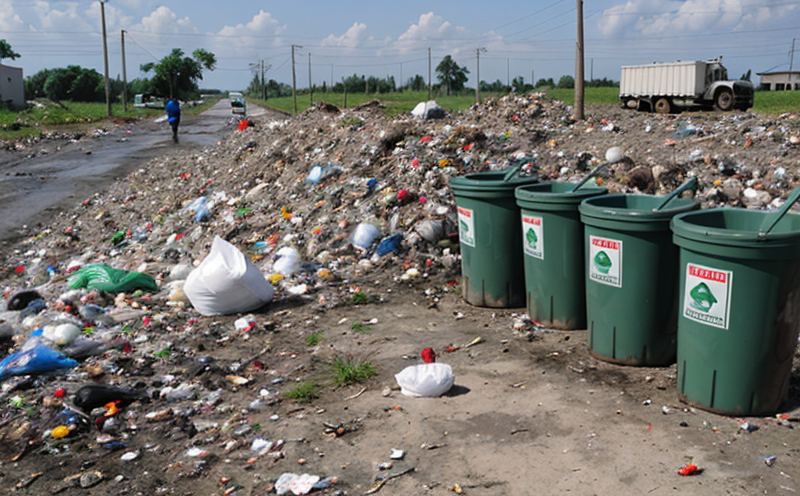ISO 11465 Determination of Dry Matter in Solid Waste Test
The ISO 11465 standard provides a robust method for determining the dry matter content in solid waste materials. This is crucial for understanding the composition and quality of waste streams, particularly important for regulatory compliance, environmental impact assessments, and waste management strategies.
Compliance with this standard ensures accurate measurement of water content, which is vital for waste characterization, recycling processes, and landfill operations. The test method involves drying a representative sample to constant weight under controlled conditions. This process helps in identifying the proportion of organic matter versus inorganic material, thereby aiding in the management of hazardous and non-hazardous waste streams.
The standard is widely used across various sectors including municipal solid waste management, industrial waste disposal, and environmental consulting firms. It plays a pivotal role in ensuring that waste materials are handled in an environmentally responsible manner, adhering to international standards for sustainable practices.
Our laboratory specializes in providing this service with precision and reliability. By leveraging advanced instrumentation and experienced personnel, we ensure accurate and consistent results, which are critical for making informed decisions regarding waste treatment and disposal.
Scope and Methodology
| Stage | Procedure | Instrumentation | Outcome |
|---|---|---|---|
| Sample Preparation | Ensure the sample is representative of the waste stream. Homogenize if necessary. | Grinders and sieves | A uniform, homogeneous sample ready for drying. |
| Drying | Place samples in a pre-determined weight container and dry to constant weight at 105°C ± 3°C. | Oven with temperature control | Weight of the dried material after reaching constant weight. |
| Weighing | Measure the initial and final weights of the sample before and after drying. | Sensitive analytical balance | Dry matter content percentage calculation. |
| Data Analysis | Analyze the results to determine compliance with regulatory standards or internal quality requirements. | Computer software for data analysis | A quantitative measure of dry matter content in solid waste. |
The detailed methodology ensures that all samples are handled uniformly, leading to consistent and reliable results. This standardized approach not only meets the stringent requirements set by ISO 11465 but also provides a foundation for further analysis and decision-making processes within industries dealing with solid waste.
Benefits
Determining dry matter content using ISO 11465 offers several advantages:
- Regulatory Compliance: Ensures adherence to international standards for waste management, reducing the risk of non-compliance penalties.
- Eco-Friendly Practices: Helps in optimizing recycling processes and minimizing environmental impact by accurately quantifying organic content.
- Data-Driven Decisions: Provides valuable insights into the composition of waste streams, supporting informed strategic planning for waste reduction and resource recovery.
- Quality Assurance: Ensures consistent quality standards across different batches or sources of solid waste materials.
The accuracy provided by this testing method is crucial in achieving these benefits. Our laboratory’s expertise ensures that every test adheres to the highest standards, thereby enhancing operational efficiency and sustainability practices within your organization.
Use Cases and Application Examples
This service finds application in numerous scenarios across different industries:
- Municipal Waste Management: Understanding the composition of municipal waste can help in devising effective recycling strategies.
- Hazardous Waste Handling: Identifying the dry matter content aids in managing hazardous waste more safely and efficiently.
- Recycling Facilities: Ensuring accurate dry matter measurements supports the efficient processing of recyclable materials.
- Agricultural Waste: Analyzing agricultural by-products helps in optimizing composting processes.
In each case, our service provides critical data that is essential for making informed decisions. By partnering with us, you can ensure that your waste management practices are aligned with the latest international standards and best practices.





